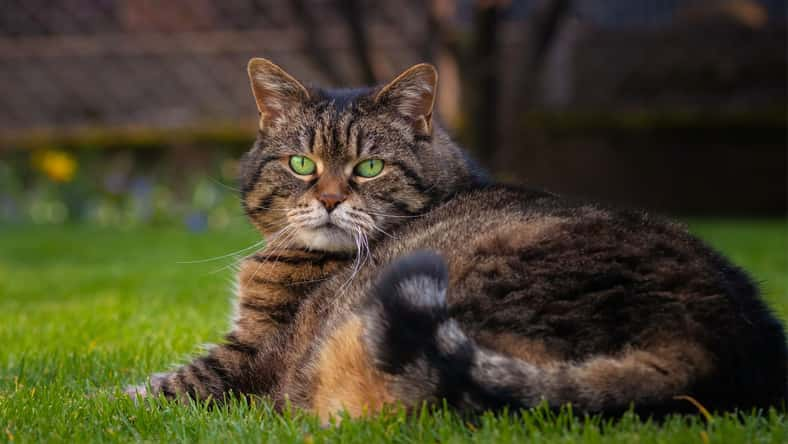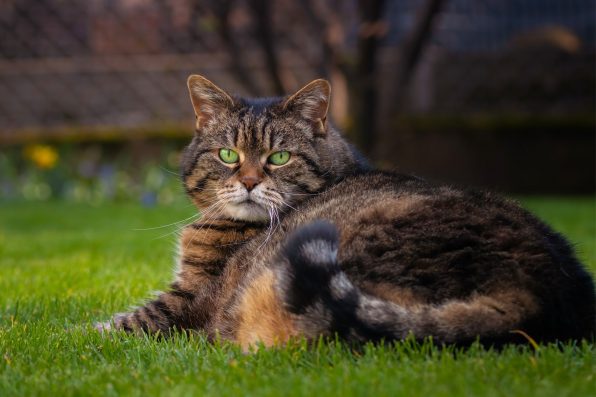Fat Cats May Help Scientists Better Understand Obesity In Humans And How To Treat It, According To A New Study

A new study has claimed that fat cats can help scientists better understand obesity and treatment for the condition in humans. Food-related changes in the gut microbiome of fat cats are similar to the way diet affects the human gut.
As a result, pet cats may be the best models for the study of the human microbiome and whether the alteration of gut bacteria can help fight obesity.
“Animals share our beds. They share our ice cream. There are all these things that people do with their pets that highlight they are a naturally occurring disease model with similar environmental exposures as humans,” Jenessa Winston, the lead author of the study and an assistant professor of veterinary clinical sciences at Ohio State University, said.
According to the Centers for Disease Control and Prevention, about 60 percent of cats in developed countries are obese or overweight, and more than two in five adults in the United States have obesity.
For the study, researchers fed seven obese cats an increasingly strict diet over the course of 16 weeks. The diet started with free-feeding of commercial cat food for two weeks and progressed to a special weight loss diet, which lasted for one week.
Then, they moved on to calorie-restricted feeding of the weight-loss food for 11 weeks to achieve a one to two percent reduction in body weight per week. Finally, they returned to the original maintenance diet.
The researchers analyzed the cats’ fecal samples as they lost and maintained weight throughout the dietary changes. They found that a short-chain fatty acid known as propionic acid increased in the fecal samples of cats losing weight on the diet with strict calorie reduction.
In other mammals, propionic acid has been shown to help regulate appetite, reduce the accumulation of fat, and protect against obesity and diabetes. The abundance of propionic acid correlated with an increase in the gut bacterium Prevotella 9 copri.
Previously, research has linked Prevotella 9 copri in the human gut to better blood sugar control and weight loss.

rhoenes – stock.adobe.com – illustrative purposes only, not the actual cat
“When the cats are on the special diet formulated for weight loss, propionic acid goes up and stays high, and then goes back down when they’re put back on the maintenance diet. So it really is a dietary change,” said Winston.
“This paper highlights that when we calorie-restrict cats that are obese, we can alter their microbial ecosystem — and those community shifts that we see likely correlate with some metabolic outcomes.”
The results also indicated that the changes in the gut bacteria of pet cats could provide crucial information on how dieting affects the gut microbiome of humans.
Winston is now supervising two large clinical trials that aim to help overweight dogs and cats lose weight.
The cat food for the weight loss diet in this study was provided by Nestle Purina, which also helped fund the research. The study was published in Scientific Reports.
Sign up for Chip Chick’s newsletter and get stories like this delivered to your inbox.
More About:Animals